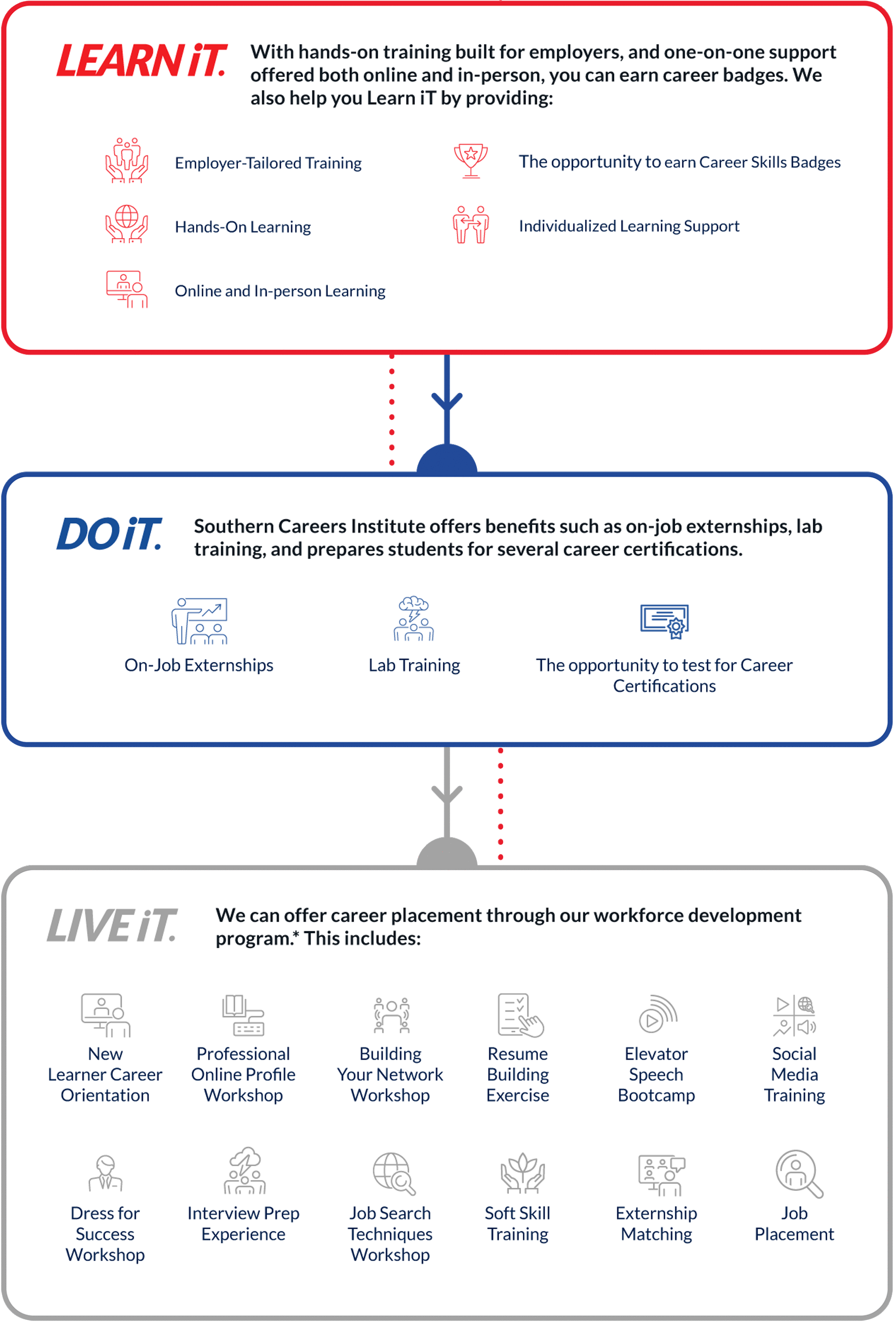THE CAREER OF YOUR DREAMSSTARTS HERE
THE CAREER TRAINING OF YOUR DREAMSSTARTS HERE
BUILD YOUR FUTURE. PREPARE FOR 6 CERTIFICATIONS IN ONE TRAINING PROGRAM.
WE'RE DIFFERENT.
SO ARE YOU.
OURDIFFERENCE
OURDIFFERENCE
* SCI does not guarantee employment or a starting salary upon graduation, completion, or withdrawal from SCI.
CAREER TRAINING.FOR YOUR FUTURE.
- Southern Careers Institute
- Competitors
| Southern Careers Institute | Competitors | |
$3999 /year | $3999 /year | |
| 320 Hours of Hands-On Lab Hours | ||
| 178 Hours Of On-The-Job Externship | ||
| Preparation For 6 Career Certifications | ||
| Earn 20 Skill Badges | ||
| EKG Training | ||
| Phlebotomy Training | ||
| Professional Skills Training | ||
| Hybrid Learning | Buy Now | Buy Now |
The graphic compares our institution’s features and benefits to competitors who offered the program between 01/01/2024 and 06/30/2024 in Texas. It is essential to conduct independent research when choosing an institution for training. Information in the graphic is general and may vary. We do not guarantee accuracy and disclaim liability.
HEAR FROM GRADUATES
Past students’ outcomes, starting salaries, or job prospects are not indictive of the possible job outcomes for future and current students. SCI does not guarantee employment or a starting salary upon graduation, completion, or withdrawal from SCI.
CAREER TRAININGYOU CAN TRUST
ACCREDITED
Southern Careers Institute is Accredited by the Commission of the Council on Occupational Education.
APPROVED
Southern Careers Institute is Approved for training by The Texas Workforce Commission.
Authorized
Southern Careers Institute is Authorized by the National Health Career Association to be a certification testing site.
HERE'S WHAT YOU CAN EARN AS AMEDICAL ASSISTANT STUDENT
Included National Certifications*
Taken through a third party provider
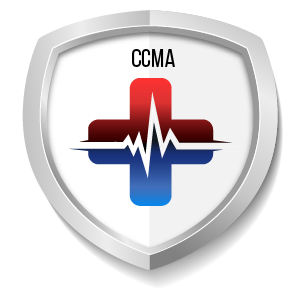
Certified Clinical Medical Assistant
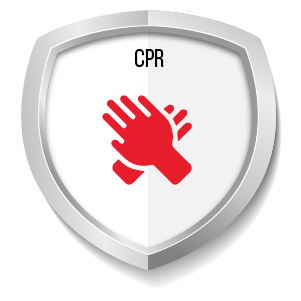
Basic Life Support
*Exam fee included in tuition and will be paid if taken within three months of program completion.
Additional National Certifications**
Taken through a third party provider
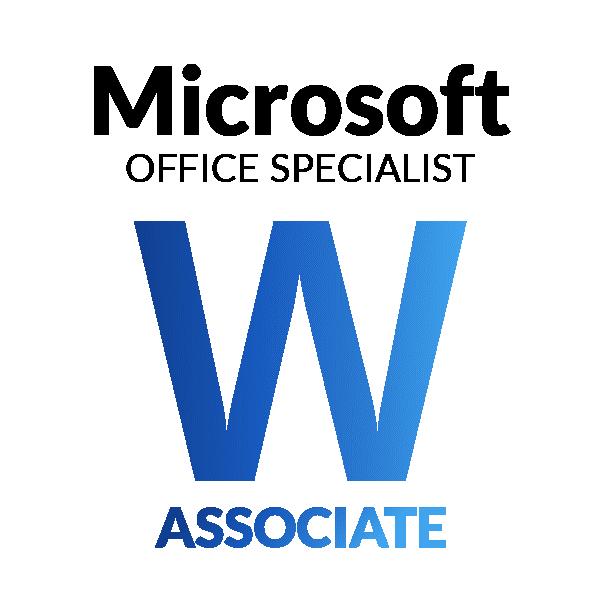
Microsoft Office Specialist
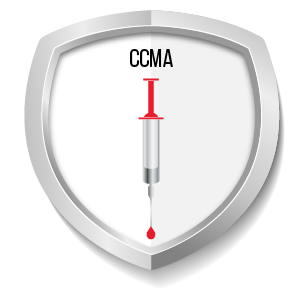
Certified Phlebotomy Technician
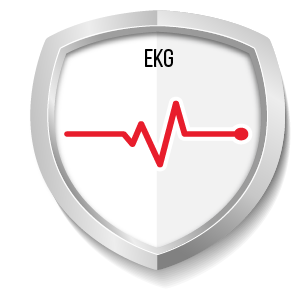
Certified EKG Technician
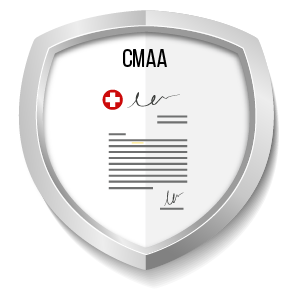
Certified Medical Administrative Assistant
**Additional Exam fees not included in tuition.
WHAT TO KNOW ABOUT AMEDICAL ASSISTANT CAREER
Why become a Medical Assistant?
Being a Medical Assistant allows you to make a positive impact on people’s lives by providing direct patient care and support. Additionally, the healthcare industry continues to grow, and there is a high demand for Medical Assistants.
Being a Medical Assistant allows you to make a positive impact on people’s lives by providing direct patient care and support. Additionally, the healthcare industry continues to grow, and there is a high demand for Medical Assistants.
Our Medical Assistant training uses a hands-on training model to teach aspiring Medical Assistants important skills such as:
- Reading Vital Signs
- Performing EKGs and CPR
- Drawing Blood
- Performing Lab Work
Training in an approved program like the one offered by Southern Careers Institute is a necessary step to becoming a medical assistant.
Southern Careers Institute’s training is designed to be completed in as little as 9 months!
Medical Assistants can work in a variety of exciting places such as:
- Physician’s offices
- Hospitals
- Nursing homes and assisted living facilities
- Medical laboratories
Although many employers prefer certified Medical Assistants, certifications are currently not required. Southern Careers Institute graduates have chosen the following certifications based on their career goals:
Certified Clinical Medical Assistant (CCMA)
Certified Medical Administrative Assistant (CMMA)
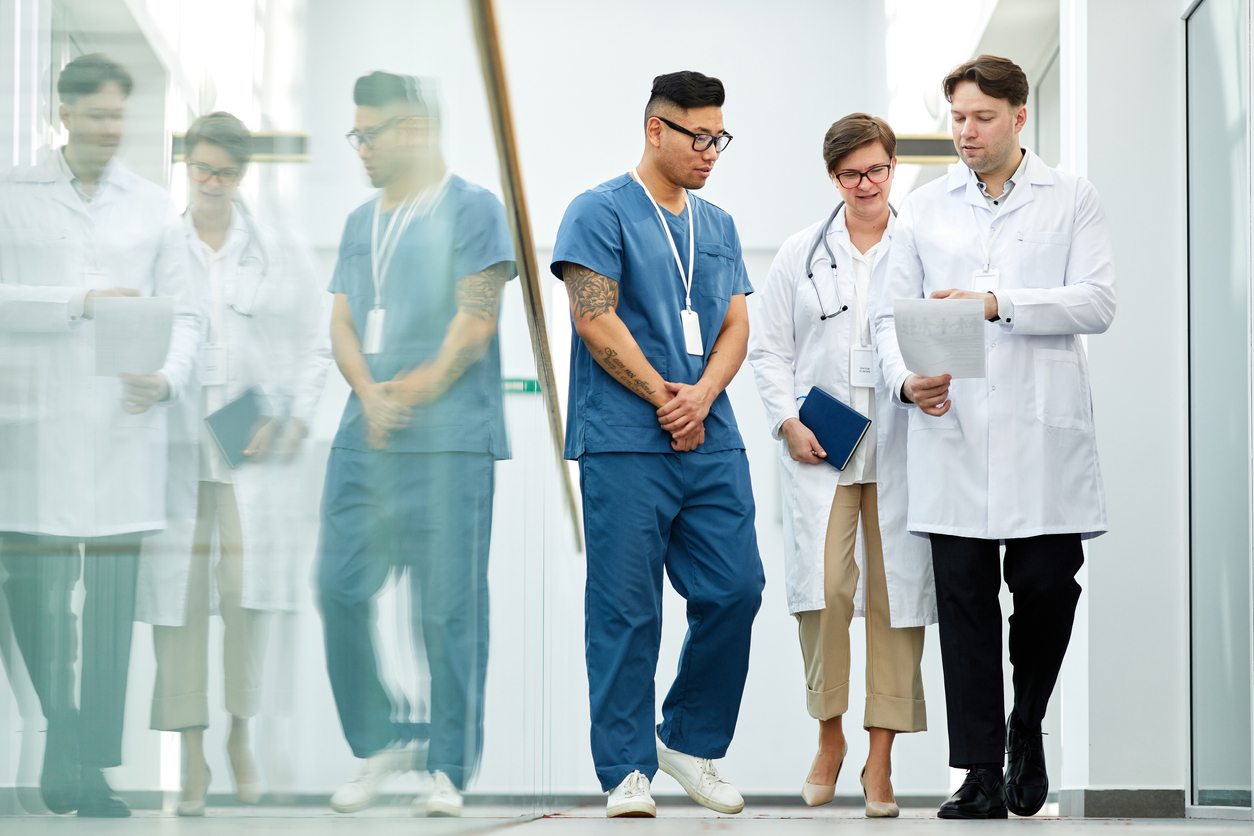
What does Medical Assistant training consist of?
Our Medical Assistant training uses a hands-on training model to teach aspiring Medical Assistants important skills such as:
- Reading Vital Signs
- Performing EKGs and CPR
- Drawing Blood
- Performing Lab Work
Do you need training to become a Medical Assistant?
Training in an approved program like the one offered by Southern Careers Institute is a necessary step to becoming a medical assistant.
How long is Medical Assistant training?
*with successful full-time enrollment
Where can Medical Assistants work?
- Physicians’ offices
- Hospitals
- Nursing homes and assisted living facilities
- Medical laboratories
Do you have to have certification to become a Medical Assistant?
Although many employers prefer certified Medical Assistants, certifications are currently not required. Southern Careers Institute graduates have chosen the following certifications based on their career goals:
Certified Clinical Medical Assistant (CCMA)
Certified Medical Administrative Assistant (CMMA)
Southern Careers Institute (SCI) does not guarantee employment or a starting salary upon graduation, completion, or withdrawal from SCI. It is not required to attend SCI to attain a job or earn a certain salary in a field of employment. Past students’ outcomes, starting salaries, or job prospects are not indicative of those for future and current students.
FINANCIAL AID. THE SIMPLE WAY.
We're here to make sure you can afford the career training you need. Our combination of grants, scholarships, loans, work-study, and Military education benefits are here to ensure a stress-free experience that works around your finances.
Institutional Grants
Federal Financial Aid
Veterans Benefits
Workforce Funding
Private Student Loans
As an accredited post-secondary institution, SCI has various federal financial assistance programs available for qualified students enrolled in SCI programs. This does not apply to seminar students. Financial aid is available for those who qualify. Not all SCI programs are eligible for federal grants.
Course Descriptions
Hours: Theory 20 / Laboratory 20 / Total 40 / Quarter Credits 3.0 / Outside Hours 10 / Prerequisites: None
This course focuses on the basic techniques of electronic word processing. Through utilization of application software, students will study the functionality of the program in creating work products. Preparation for Certiport MOS Word Exam.
Hours: Theory 40 / Laboratory 0 / Total 40 / Quarter Credits 4.0 / Outside Hours 10 / Prerequisites: None
The role of customer service is studied focusing on skills needed to work effectively with individuals or groups. Problem solving and critical thinking skills will be incorporated in exploring varying aspects of interaction with internal and external customers.
Hours: Theory 20 / Laboratory 20 / Total 40 / Quarter Credits 3.0 / Outside Hours 10 / Prerequisites: None
This course introduces the skills needed for career success. Students will have the opportunity to learn about setting personal and professional goals, job search techniques and portfolio development. Final resume, cover letter and mock interviews are key aspects of this course. Students may also learn about different career paths.
Hours: Theory 40 / Laboratory 0 / Total 40 / Quarter Credits 4.0 /Outside Hours 10 / Prerequisites: None
Students will study communication skills utilizing informal writing techniques. Focus will be on the production of work product that demonstrates basic skills in communicating to individuals or groups. Software and/or online ancillaries will be incorporated to supplement project creation.
Hours: Theory 40 / Laboratory 0 / Total 40 / Quarter Credits 4 / Outside Hours 10 / Prerequisites: None
In this course, students will be introduced to the anatomy, physiology, structure, and function of the foundational systems of the human body. The structure and function of the Integumentary, Muscular, and Skeletal systems will be taught. Common diseases and disorders associated with these systems will be discussed, along with common Medical Terminology roots, prefixes, suffixes, and abbreviations.
Hours: Theory 40 / Laboratory 0 / Total 40 / Quarter Credits 4 / Outside Hours 10 / Prerequisites: None
In this course, students will be introduced to the anatomy, physiology, structure, and function of the vital systems of the human body. The structure and function of the Cardiovascular, Lymphatic, Respiratory, and Nervous systems will be taught. Common diseases and disorders associated with these systems will be discussed, along with common Medical Terminology roots, prefixes, suffixes, and abbreviations.
Hours: Theory 40 / Laboratory 0 / Total 40 / Quarter Credits 4 / Outside Hours 10 / Prerequisites: None
In this course, students will be introduced to the anatomy, physiology, structure, and function of the transformative systems of the human body. The structure and function of the digestive, urinary, endocrine, and reproductive systems will be taught. Common diseases and disorders associated with these systems will be discussed, along with common medical terminology roots, prefixes, suffixes, and abbreviations.
Hours: Theory 10 / Laboratory 30 / Total 40 / Quarter Credits 2.5 / Outside Hours 10 / Prerequisites: None
In this course, students will explore the electronic health record. Students will practice administrative tasks such as scheduling, completing reports, entering coding, and billing information, and submitting claims. Healthcare ethics and compliance with HIPAA regulations is emphasized throughout the course.
Hours: Theory 10 / Laboratory 30 / Total 40 / Quarter Credits 2.5 / Outside Hours 10 / Prerequisites: None
In this course, students will explore the electronic health record. Students will practice administrative tasks such as maintaining records, completing forms, documenting diagnoses, and posting charges, payments, and adjustments. Healthcare ethics and compliance with HIPAA regulations are emphasized throughout the course.
Hours: Theory 20 / Laboratory 20 / Total 40 / Quarter Credits 3 / Outside Hours 10 / Prerequisites: None
This course exposes students to the fundamental elements and terminology of medical insurance payment systems and reimbursements. Students will examine different types of healthcare insurance coverage, the medical billing cycle, and the general guidelines and processes for claims preparation and transmission. Types of data that must be gathered in each patient encounter will be discussed, as well as protected health information as applied to HIPAA.
Hours: Theory 10 / Laboratory 30 / Total 40 / Quarter Credits 2.5 / Outside Hours 10 / Prerequisites: None
In this course, students examine effective communication techniques used by professionals in a variety of medical settings. Emphasis is placed on appropriately tailoring verbal and written communication to various audiences and scenarios. Soft skills and etiquette are also addressed, especially as it pertains to professionalism, legal compliance, and the use of technology.
Hours: Theory 40 / Laboratory 0 / Total 40 / Quarter Credits 4 / Outside Hours 10 / Prerequisites: None
This course introduces students to law and ethics in the medical profession. Students will be introduced to the rights and responsibilities of healthcare consumers and providers. Differences between law, ethics and moral values will be presented. Protected health information will be identified and discussed as applied to HIPAA.
Hours: Theory 20 / Laboratory 20 / Total 40 / Quarter Credits 3 / Outside Hours 10 / Prerequisites: None
In this course, students will be introduced to preparation and monitoring of a patient for a variety of EKG tests. Students will also explore identification and response to potential life-threatening situations. Emphasis is placed on the safe and proper use of 12-lead EKG equipment. Additionally, students will explore basic First Aid, CPR, and use of AED. (** preparation for CET cert).
Hours: Theory 10 / Laboratory 30 / Total 40 / Quarter Credits 2.5 / Outside Hours 10 / Prerequisites: None
Students in this course can practice and develop their understanding of the clinical competencies needed as a Medical Assistant. Core
competencies covered include infection control, patient education, proper methods for taking and documenting patient vital signs, methods
for preparation of rooms and instruments, assisting physicians with medical procedures, and identifying and appropriately responding to
emergency situations. Emphasis in this course is placed on commonplace procedures such as general physical exams, basic wound and
injury care, allergies, and immunizations.
Hours: Theory 10 / Laboratory 30 / Total 40 / Quarter Credits 2.5 / Outside Hours 10 / Prerequisites: MED120
This course is a continuation of MED120. The origination and aspects of dysthymias as presented on the EKG tracing will be discussed. Recognition and identification of sinus, atrial, ventricular, or junctional dysthymias will be emphasized. Dysthymias associated with hypertrophy, trauma, electrolyte imbalance and congenital heart malformations are presented. Medical law and Ethics as they apply to electrocardiogram technicians will be introduced. The lab activities introduce trouble shooting the EKG machine, accommodations for special populations requiring an EKG, and continued identification and recognition of critical and life-threatening dysthymias. A practice certification examination will be given in preparation for taking the Certified EKG Technician (CET) examination. (preparation for CET cert
Hours: Theory 20 / Laboratory 20 / Total 40 / Quarter Credits 3 / Outside Hours 10 / Prerequisites: None
In this course, students will examine the general principles of pharmacology relating to the Medical Assisting profession. The course will cover drug forms, drug classification, and use of drug reference resources. Competency in proper measurement, calculation, and administration of drugs, as well as proper documentation regarding drug administration on the patient record will be covered. Emphasis is placed on understanding the regulations surrounding medication storage, preparation, administration, and disposal.
Hours: Theory 20 / Laboratory 20 / Total 40 / Quarter Credits 3 / Outside Hours 10 / Prerequisites: None
In this course, students will be introduced to the role of the Medical Assistant in the lab, as well as proper use and maintenance of basic lab and phlebotomy equipment. As it pertains to capillary collection, blood smear, and non-blood specimen collection, students will explore the following: microbiology, anatomy and physiology, pre-test prep, site selection, patient communication, collection techniques, specimen maintenance, understanding specimen data and reporting lab results. Compliance with OSHA, HIPAA and CDC regulations are emphasized, as are customer service, professionalism, and working with special patient populations.
Hours: Theory 20 / Laboratory 20 / Total 40 / Quarter Credits 3 / Outside Hours 10 / Prerequisites: None
In this course, students will be introduced to the role of the Medical Assistant in the lab, as well as proper use and maintenance of basic lab and phlebotomy equipment. As it pertains to venipunctures, blood cultures, and blood donation, students will explore the following: anatomy and physiology, pre-test prep, site selection, patient communication, collection techniques, specimen maintenance, understanding specimen data and reporting lab results. Compliance with OSHA, HIPAA and CDC regulations are emphasized, as are customer service, professionalism, and working with special patient populations.
Hours: Theory 10 / Laboratory 30 / Total 40 / Quarter Credits 2.5 / Outside Hours 10 / Prerequisites: None
Students in this course can practice and develop their understanding of the clinical competencies needed for working as a Medical Assistant. Core competencies covered include infection control, patient education, proper methods for taking and documenting patient vital signs, methods for preparation of rooms and instruments, assisting physicians with medical procedures, and identifying and appropriately responding to emergency situations. Emphasis in this course is placed on special clinical procedures such as assisting with specialized exams, traumatic injuries, staple and suture removal, and surgical interventions.
Hours: Theory 40 / Laboratory 0 / Total 40 / Quarter Credits 4.0 / Outside Hours 10 / Prerequisites: None
Students will study office procedures using the functionality of business machines in resolving business problems. Students will incorporate 10-key calculators and other electronic applications in completion of course objectives.
Hours: Theory 0 / Laboratory 0 / Externship 178 /Total 178 / Quarter Credits 5.5 / Final course
This 178-hour course provides the student with an opportunity to utilize learned skills in a work environment. Students will be provided an opportunity to observe and participate in activities associated with their training and career direction. Students will work without compensation and must complete the total hours and skills requirements that reflect an overall understanding of the job competencies
FREQUENTLY ASKEDQUESTIONS
What makes Southern Careers Institute different?
We give students an alternative to expensive, four-year degrees. Employers are looking for specific skills from candidates they can hire with confidence. Our coursework goes deeper than pen and paper, providing hands-on learning opportunities that set us apart from the competition. Our goal is to provide you with an education that will empower your future.
What if I’ve been out of school for a while?
That’s okay! At Southern Careers Institute, we have had a plethora of students successfully complete their programs after being away from school for long periods of time. We’re ready to meet you where you’re at, providing a community-based learning environment where you’ll feel right at home as you readjust to life as a student!
What can I expect to gain from Southern Careers Institute?
Southern Careers Institute provides you with the training you need to sit for certifications in your chosen field. Whether it’s our Medical Assistant training program, Medical Billing and Coding Specialist program, Pharmacy Technician program, Business Accounting Specialist program, HVAC program, or any other educational programs available, you will receive training to tackle industry-specific certifications.
I don’t know if I can afford training. Is there financial aid available?
As an accredited school, we participate in many financial aid programs and available grants to make your education more affordable. Contact us today and our financial aid officers will explain the process and answer all of your questions.
How can I obtain more information?
Click here or call 1.833.SCI.TEXAS today to speak with one of our admissions representatives, who will be happy to schedule an appointment to answer all of your questions.
Is Southern Careers Institute accredited school?
Southern Careers Institute is accredited by the Commission of the Council on Occupational Education.
Council on Occupational Education
7840 Roswell Road, Building 300,
Suite 325 Atlanta, GA 30350
(770) 396-3898 or (800) 917-2081
Does Southern Careers Institute accept credits from other schools?
If you are a student transferring from another school, you must provide a transcript and detailed course descriptions for review prior to starting school. Please be advised that the acceptance of credits from another school/state board is at the sole discretion of Southern Careers Institute.
Does Southern Careers Institute offer classes in any other language than English?
Our students must be able to read, write, speak, and understand English. At this time, programs are not offered in any language other than English.
OUR GRADUATES HAVE BEENHIRED BY






Employers are not incentivized by Southern Careers Institute (SCI) to hire our graduates. Employers are not incentivized to review or comment on the performance and outcomes of our graduates, or on SCI. Past students’ outcomes, starting salaries, and job prospects are not indicative of those for current and future students. SCI does not guarantee employment or a starting salary upon graduation, completion, or withdrawal from SCI.

